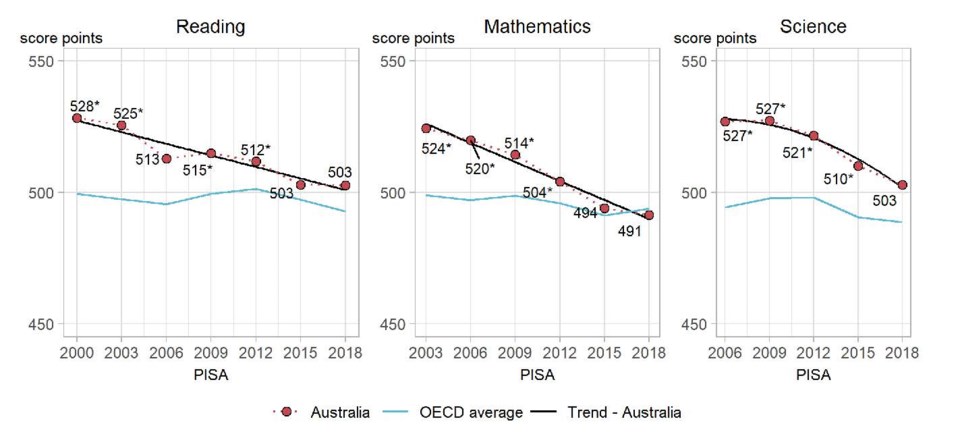Saskatchewan should learn from Australia about the drawbacks of using outcomes-based education, especially since international learning scores in the land Down Under have decreased since the system’s implementation, a trio of Moose Jaw mothers says.
Australia implemented outcomes-based education (OBE) in 1993, which led to rumblings of discontent from teachers and parents, according to an article from the Australian Broadcasting Corporation. When the school system attempted to implement non-percentage grading for grades 11 and 12, the public began to speak out.
This led to the creation of People Lobbying Against Teaching Outcomes (PLATO) in 2004 by high school science teacher Marko Vojkavic. He said the Australian government should halt the implementation of all OBE courses in Western Australia since it was a waste of money introducing them when schools needed to upgrade their infrastructure and equipment. He also thought no amount of refining would make the courses better unless the assessment process was changed.
Another education professional, Kevin Donnelly, has also produced a report on Australia’s use of OBE.
PLATO later received the support of university professors, who said there was a noticeable and observable decline in performance of students in the maths and sciences subjects.
By 2007 the minister of education declared that OBE did not work in practice and the curriculum would be dismissed. However, when the new curriculum was revised, it was still outcomes-based.
Such was the information that three Moose Jaw mothers provided to the Prairie South School Division’s board of trustees during the most recent board meeting.
Jan Nelson, Cheryl Searle and Lindsay Newsham expressed their concerns about the use of outcomes-based education and reporting in schools. They believed OBE negatively affects student motivation and lacks clarity in reporting how students are truly doing; some of their kids have done poorly under this system.
Among the documents presented to trustees, one focused on how OBE has adversely affected Australia and its standing in the Programme for International Student Assessment (PISA), a worldwide program that measures 15-year-olds’ ability to use their reading, mathematics and science knowledge to meet real-life challenges.
“I have been in correspondence with Marko Vojkavic, the leader of PLATO, and he shared with me that the province (of Western Australia) is still very much outcomes-based, as well as the whole nation,” Nelson told board trustees. “He (also) forwarded me a document showing Australia’s results of the last PISA test scores.”
That document indicated PISA results for Australia in 2003 placed it 10th in maths, fourth in reading and sixth in science. In 2018 — 15 years later — Australia’s PISA scores showed it had dropped to 29th in maths, 17th in sciences and 16th in reading.
Over those 15 years, there has been an increase in low-performing students versus high-performing youths, Nelson pointed out. It is the students who are doing poorly who are now becoming teachers in the Australian education system.
“The education road Australia is treading is very concerning,” she continued. “I worry this could be us in 15 years.”
Data from the 2003 PISA study found that Canada placed sixth in maths, third in reading and 11th in sciences. In 2018, Canada placed 12th in maths, sixth in reading and eighth in sciences.
Nelson pointed out the gap between high-achieving Canadian students and low-achieving pupils has widened due to an increase in low achievers since 2009. Furthermore, data from the Council of Ministers of Education, Canada (CMEC) shows Saskatchewan is lowering the Canadian PISA average, especially in math.
“If in fact outcome-based (education) is the best form of education in this 21st century, why are we declining?” Nelson wondered.
While the philosophy of OBE is beautiful, the reality is after 10 years of implementing it in Prairie South, there are still significant concerns, she added. Major modifications and additional support are needed for OBE to be truly effective.




